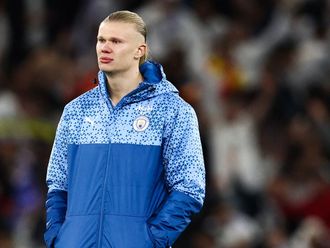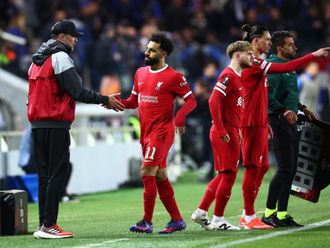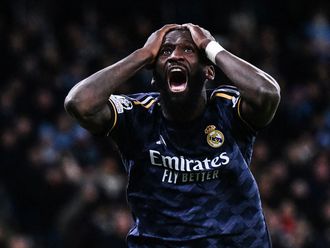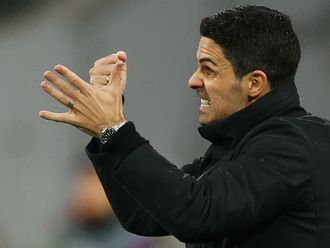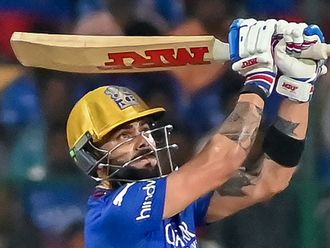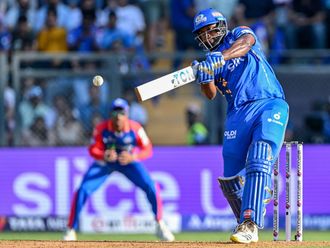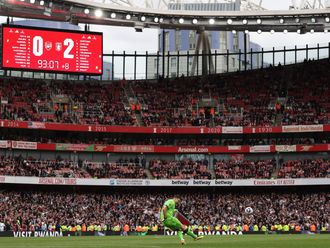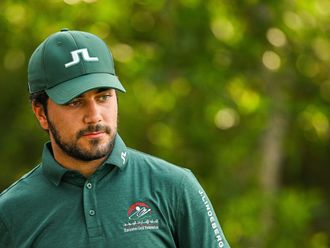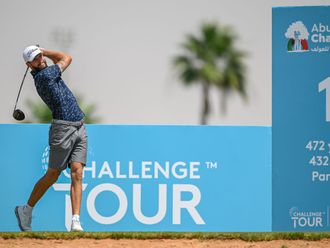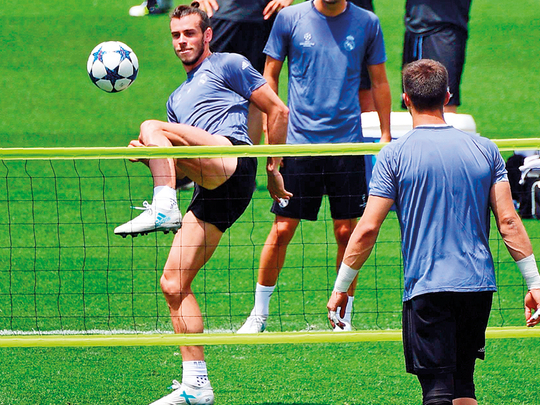
Cardiff: When certain members of the All Blacks’ World Cup squad visited Whitchurch High School in Cardiff during the autumn of 2015, their reaction to spotting Gareth Bale’s Real Madrid shirt framed on the wall was no different to the average Year 10 student.
The visitors from New Zealand might occupy hero-like status in their own sport, but they saw a match-worn Bale shirt and just wanted a picture with it.
The world’s second-most expensive footballer can have that effect on people, although at his alma mater he is remembered as the polite boy who could play rugby and hockey as well as run the sprints, middle distance and cross-country on sports day. He was still filling in for the rugby team on the wing or at full-back in his final year as a 16-year-old, and he made his professional debut at the same age for Southampton within a year of leaving the school.
Bale — who is expected to be fit in time for Saturday’s showdown between Real and Juventus, having recovered from a calf injury that has kept him out since the Barcelona home defeat on April 23 — is back in his native Cardiff this weekend in one of those rare coincidences that most elite players never experience: a Champions League final in his home town.
In the city centre, a huge replica Champions League trophy sits atop Cardiff Castle, under the wings of a giant blue dragon, and Bale’s picture flutters on a flag on the ramparts along with the other stars of the European season.
The final venue, the Principality Stadium, is just a few miles from Whitchurch, the quiet suburb where Bale grew up.
Gwyn Morris taught Bale during his time at Whitchurch High between 2000 and 2005, and as physical education teachers go, he has a remarkable record. As well as Bale, he can count among his old boys Sam Warburton, the British and Irish Lions captain, as well as the Olympic gold-medal cyclist Geraint Thomas and the Wales rugby league international Elliot Kear.
When we spoke last week, Morris was midway through Whitchurch’s epic four-day version of sports day. He does not yet have a ticket for the final, and is far too modest to ask anyone for a favour in that regard.
“Gareth is a great inspiration to youngsters, because he was not the physical specimen in school that he is now,” says Morris, himself an international rugby touch judge. “As one of the guys who was not as big as everyone else, he worked very hard on his touch. His fitness was phenomenal. He played all sports. He did football, rugby, hockey, athletics, cross-country, and he just loved it. As he went on he started specialising in football, but he still volunteered to play for the school rugby team in Year 11. It was the fact he was willing.”
Bale, Warburton and Kear all came out of the same year group at Whitchurch, one of Britain’s biggest state schools with around 2,400 students over two sites.
Whitchurch are the current Welsh schools football champions at under-18, and their famous alumni in that regard are not limited to Bale himself.
Warburton briefly played as a centre-back in the same school football team as Bale until their specialist sports took them in different directions.
Morris says that Bale always had the blistering pace, but it was other qualities that really set him apart. “The touch and the vision, the timing of the pass and the movement off the ball. Being unselfish and willing to make those runs for other people. I keep telling the kids, ‘Good players make others look good’.
“The last game Gareth played for us was in the Cardiff and Vale cup final. He was 16 playing for the first XI with boys older than him. The quality of the ball that he put in was incredible. When the boys came off they said, ‘He is something special, and it’s a shame we are losing him now.’”
Bale went on to play for Southampton, where he spent just two years, first as a scholar and then a professional, before his move to Tottenham Hotspur in the summer of 2007. His family have never left Whitchurch, and what most people will tell you is that for all their son has earnt from the game, Frank and Deborah Bale still live in the same semi-detached house they have always done.
The Bales have never sought publicity and they politely declined to discuss the return of the prodigal son when The Daily Telegraph called last week. That said, Bale is back in Cardiff often — and for a footballer who has succeeded in keeping a relatively low profile despite his immense fame, has invested in a bar on Cardiff’s Castle Street that stands as a small monument to his considerable achievements.
Elevens Bar and Grill looks out over the castle, with a full-size replica Champions League trophy in a Perspex cabinet on the wall.
Footballers investing in licensed premises is a tradition almost as old as the game itself, although it is something of a novelty for one so publicly teetotal as Bale to do so. The manager, Lara Lewis, said that, as yet, Bale has not set foot in Elevens, which only opened in April, since when he has been busy recuperating from his calf injury. Were he able to persuade the likes of Sergio Ramos, Karim Benzema and Luka Modric to make a pitstop on their way back from the stadium — although presumably not fellow teetotaller Cristiano Ronaldo — then they would be able to sample the specially commissioned Bale drink.
On the night of the final, the VIP area has been booked by BT Sport, another of Bale’s sponsors, but the punters will still be able to toast the local hero on the ground floor.
Edward Smith-Oakey, a 21-year-old student from Cardiff studying at the city’s Metropolitan University, said that Bale was the kind of sportsman who commanded the admiration of his peers. “It will be like a home game for him,” he said.
“I know people who went to school with him, and they all say he is not the arrogant type at all. People here want him to do well. I like the fact that he has opened a bar here in Cardiff rather than London, which others might choose to do.”
Bale was already a sporting icon in Wales before the nation’s qualification for Euro 2016, but his status was cemented in France in that remarkable run to the semi-finals. The shirt he wore in the previous round against Belgium is on display in Elevens, and a year on from that famous summer when Wales took on the best in Europe, the return of Bale to Cardiff will serve as a reminder that they can compete on the greatest stages.
What is it that Morris tells the boys and girls of Bale’s former school when they ask about the famous old boy? “I say that he did his best at everything. He was down in Southampton two days a week by the end, but he still came out with good GCSE grades. It just shows that someone can work at both. His talent is obvious on the field, there is no doubt, but he still managed to have results he was proud of when he left and that was important to us.
“We try to develop an individual who has no fear of failure, and a need to achieve. We keep telling them somebody has to win an Olympic gold medal, somebody has to play for Wales, somebody has to play for the British and Irish Lions. Why can’t it be you? When you look back you can say you tried your damnedest to get there. You may not make it, but if you work harder than the next person, you will have a chance.”
Morris recalls that Bale missed just one game for his school football team. He came to ask for Morris’s permission to do so, and it was because he had been named, as a 15-year-old, on the bench for the FA Youth Cup final squad in 2005, which Southampton lost over two legs to Ipswich Town. Twelve years on, he is back in Cardiff for what most footballers would regard as the game of their life. Not so much because it is the Champions League final — Bale has played in two already — but because of where it is and what he means to the city to which he is returning.


